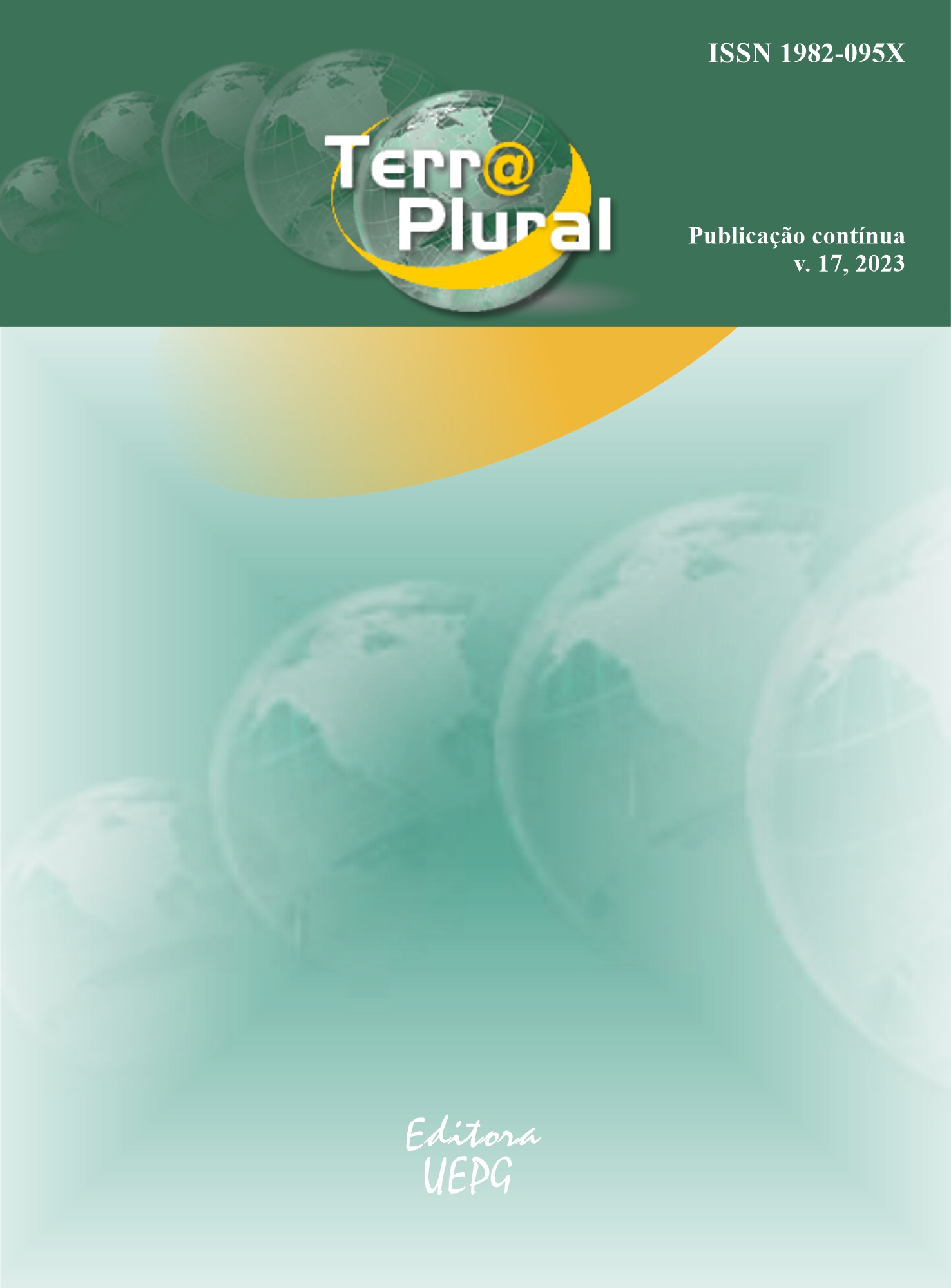Deposição de serrapilheira em Capões de Mata associados a turfeiras na Serra do Espinhaço Meridional - Parque Estadual do Rio Preto, MG
DOI:
https://doi.org/10.5212/TerraPlural.v.17.2321063.001Palavras-chave:
matéria orgânica do solo, ecologia funcional, fitogeografia, paisagemResumo
Compreender a dinâmica evolutiva dos capões na paisagem pode subsidiar estratégias de conservação dos ecossistemas de turfeiras em montanhas tropicais e detalhar como diferentes elementos interagem na formação da paisagem. Estudou-se um ecossistema de turfeira na nascente do Rio Preto, em uma superfície de aplainamento conhecida como Chapadão do Couto, no Parque Estadual do Rio Preto (São Gonçalo do Rio Preto, MG) sob altitude de 1.600 m. Analisou-se dois capões de mata com predomínio de floresta estacional semidecidual, um inserido totalmente dentro da turfeira e outro na transição para o Campo Limpo Seco. O propósito foi investigar variações na quantidade e fracionamento de serapilheira aportada em cada fragmento florestal em diferentes épocas do ano, para evidenciar respostas da floresta às distintas condições de inserção na turfeira e como isso afeta a dinâmica de equilíbrio funcional do ecossistema. Quatro coletas de serapilheira foram realizadas no interior dos capões (jun./2018 a fev./2019) por meio da instalação de coletores de 1 m2 confeccionados com tela de sombrite, suspensos a uma altura de 50 cm. Observou-se uma dinâmica de interações com padrões distintos entre os capões, sendo verificadas variações na serapilheira com relação à intensidade e à quantidade da deposição e dinâmica de deciduidade, esta mais associada às condições de umidade do solo do que à temperatura na superfície e outros aspectos da matéria orgânica do solo.
Downloads
Downloads
Publicado
Como Citar
Edição
Seção
Licença
Copyright (c) 2023 Thamyres Sabrina Gonçalves, Carlos Victor Mendonça Filho, Alexandre Christófaro Silva

Este trabalho está licenciado sob uma licença Creative Commons Attribution-NonCommercial-NoDerivatives 4.0 International License.
Os autores mantêm os direitos autorais e concedem à revista o direito de primeira publicação, que permite o compartilhamento do trabalho com reconhecimento da sua autoria e publicação inicial nesta revista. Os autores autorizam a distribuição para indexadores e repositórios institucionais, com reconhecimento da sua autoria e publicação inicial nesta revista. Autores são estimulados a distribuir a versão on line do artigo (por exemplo, em repositórios institucionais ou em sua página pessoal), considerando que isso pode gerar alterações produtivas, bem como aumentar o impacto e as citações do artigo publicado.

Este obra está licenciado com uma Licença Creative Commons Atribuição 4.0 Internacional.















